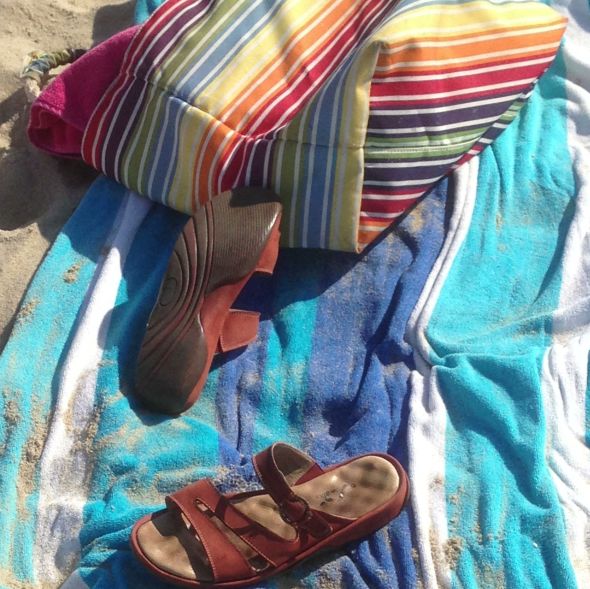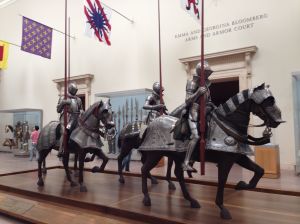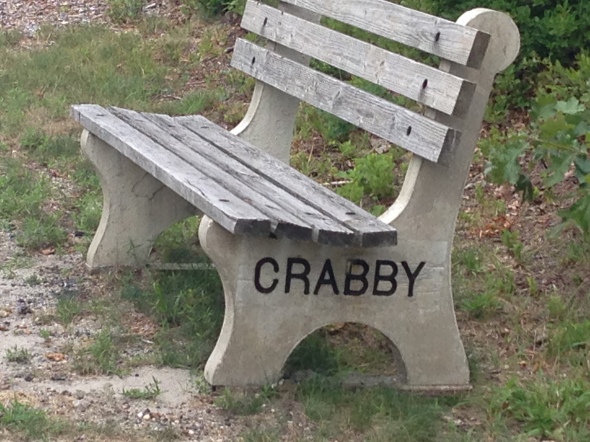Welcome. Feel Free To Poke Around.
Posted: October 21, 2019 Filed under: Genealogy Leave a commentYou don’t have to be Sherlock to figure out that this blog is no longer being updated on the regular. But I still periodically check and update the resource links at the right-hand side of the page.
Most of the links reflect the core mission of this blog: research in urban and suburban New York and New Jersey. If you want to know about New Jersey churches, or forgotten movie palaces, or everything Newark, check them out. And use the search box to find past posts on Brooklyn, Jersey City, the Albany-Troy (NY) area, and general musings on big-city ancestors.
This blog remains dedicated to everyone whose ancestors lived in tenement apartments and commuter-town bungalows instead of on cattle ranches and colonial farms, to everyone with a brick-wall Brooklyn ancestor who despaired at the classic census advice to “read the whole county.” In short: to all of us with city cousins waiting to be found.
Happy searching, urban genealogy friends.
Summer News: Quick Hits
Posted: July 29, 2015 Filed under: Genealogy | Tags: Link Love, Rants and riffs 1 CommentOh sure, I gather information intending to share Deep Thoughts about it. But especially around this time of year, I look at my files and think, “Maybe it’s better to just get the links out there and hit the beach.”
So, um, here you go.
• In case you missed it: This is hands down the best obituary you will ever read. Here is a little more about the story behind the story.
• High school student carefully smacks down academic’s paper asserting that “No Irish Need Apply” signs were a myth, politely delivers more smackdowns in comments section of article about said smackdown.
• A genealogy project led to a sad discovery in the deep waters of a lake: A family finally has answers about a man missing for decades.
• Would you like to learn more about the “ghost villages” of Ireland? Sure you would!
Yes, We Want That. And It’s OK.
Posted: July 28, 2015 Filed under: Genealogy | Tags: Advocacy, Rants and riffs, Records 2 CommentsUpcoming changes to the Arizona State Library Genealogy Collection are a sobering reminder that nothing’s a sure thing for research collections.
It’s vital for genealogists to lead the way in fighting for publicly accessible genealogy collections. But nothing is free and inevitably a contrarian question surfaces: Why should everyone pay for something only some of us want?
True, public funding isn’t a drive-through window where each individual can order fries with that. Which is why many U.S. cities float hundreds of millions in municipal bonds to build stadiums and prop up sports franchises that can’t make it on their own, regardless of the fact that not every citizen likes hockey, baseball, basketball or football.
Theoretically,* citizens in these places argued successfully to direct tax dollars toward pastimes that thrill some and not others. They made the case that supporting sports passion is good for everybody, including non-sports fans**.
If genealogy and local history enthusiasts make their case to the public and to their elected government, and actually succeed in gaining a far smaller amount of public bucks for THEIR passion, that’s democracy working. It’s not a bank heist.
There’s no shame in advocating for what is important to us.
Note: Via Judy G. Russell at The Legal Genealogist, whose post is linked above, here are some contacts where you can express support for the Arizona genealogy community:
- Arizona Secretary of State Michele Reagan (www.azsos.gov/contact)
- Arizona State Librarian Joan Clark (www.azlibrary.gov/contact)
- Digital Content Director Laura Stone (< lstone@azlibrary.gov>)
- Arizona Governor Doug Ducey (Contact Governor Ducey)
Update: See the message here from the Transitional Genealogists forum at Rootsweb: Although a lot of stuff is re-locating and digitizing, access should continue to the materials, though not always in book-bound form. Sounds like some good news. (But if you’re in that neck of the woods, it can’t hurt keep an eye on those guys to make sure the new order is everything they say it will be.)
Update 2: Unfortunately, it is definitely too soon to relax. Connie Sheets of the Arizona Genealogical Advisory Board reports in her comment below: “Due to space and staff limitations, it is likely that only a small fraction (perhaps 500 of 20,000) of the collection will remain available, although we’re having a hard time getting specific answers to our questions.” So stay tuned.
*I say “theoretically” because in the case of sports franchises, the key voices usually belong to big-time players with big-time access. Not exactly grassroots stuff. But basically, still wheels squeaking.
**Even though the jury is still out on that.
Nostalgia Etiquette Tips, Facebook Edition
Posted: July 23, 2015 Filed under: Genealogy | Tags: communities 1 CommentDo you participate in nostalgic social media groups? Specifically, I mean the kind of Facebook group that’s titled something like “You Know You’re From …” etc., wherein people share photos and memories of a hometown or alma mater.
I love these groups, I really do, and I have learned a lot from them, along with the laughs and memories. But as with all socializing, bad habits invariably crop up. So I’m indulging myself with a few ideas on how to be a good citizen in a nostalgia group:
- Try letting people post vintage pictures of churches/schools/Scouting groups without instantly commenting about how nasty that priest/teacher/Scout leader was. Really, the rest of us got the point after the first five times you did that.
- A related point: Don’t be mortally offended if not everyone agrees with how you remember a place, event or person. That’s the thing about memories – the mileage varies.
- Consider that real people really still live in your old hometown and might be reading this nostalgia page. Comments such as “It’ll never be that good again” or “It was never the same after they developed the old Smith farm” or “I could cry when I think about what’s happened to that town” are in poor form, particularly if you haven’t actually visited the place in a decade or more to see what it’s really like today.
- A key concept here is sharing – sharing thoughts, sharing perceptions, sharing memories. My decades in our hometown were different from yours, and yours from mine, and ours from the memories being made there now, but the stories are all fascinating once you stop and actually hear them.
In short: Listen and think before you post, which is a good idea in any situation.
A Duffy’s Cut Funeral
Posted: July 13, 2015 Filed under: Genealogy | Tags: Duffy's Cut, Immigrants, Ireland 4 CommentsA while back I explored the story of Duffy’s Cut, site of a mass grave where dozens of Irish immigrant laborers died during an 1832 cholera epidemic while building a railroad not far from Philadelphia. The Duffy’s Cut Project, led by a trio of researchers from Chester County, Pa., has focused on excavating the site, learning more about the events of 1832, and very importantly, conveying dignity upon the dead.
Disturbingly, evidence has surfaced that not all the immigrants at the site died of cholera — some may actually have been murdered, probably in a savage attempt to contain the epidemic. Such appears to be the case with 29-year-old Catherine Burns of County Tyrone, whose remains were identified last December and will be brought back to Ireland this week for burial.
Burns, a widow, left Ireland with her father-in-law in the early summer of 1832 and soon vanished from the historical record. Examination of her skull indicated considerable “violence by means of a sharp implement,” according to researchers.
Read more at Irish Central. At least Burns is finally going home.
Stories to Tell (And Save)
Posted: May 25, 2015 Filed under: Genealogy | Tags: Military, NJ, NY 1 CommentToday the AP reported on how one long-forgotten casualty of World War II had finally been rediscovered and inscribed upon his hometown’s memorial. I’m glad to read those stories, where neglect ends in recognition.
A couple of years ago I did a pro bono bit of research, looking for a man killed in World War II who’d been “found,” in a sense, at a garage sale. A medal, plus a copy of a citation, had surfaced in a box of miscellaneous items. The seller had no idea where they’d come from. Since the fallen soldier had lived in my hometown, the buyer hoped I could lead him to living descendants who might want the medal.
Unfortunately that didn’t happen. The soldier was an only child, married but childless, and his widow never remarried. This garage-sale mystery ended with a cold trail and a bit of sadness that his story had ended up in a box in a stranger’s garage.
On Memorial Day, it seems especially fitting to think of ways to preserve and protect veterans’ stories. Here are a few examples. I’m sure there are others in other places. Maybe there’s one near you, too.
• The Library of Congress’ Veterans History Project is a national initiative to collect and preserve first-hand accounts from veterans.
• The Biography Project of the New Jersey Vietnam Veterans’ Memorial Foundation collects biographical information on the men and women listed on New Jersey’s memorial. At the link there’s a list of the veterans for whom there are still no photographs; the foundation welcomes any clues from the public.
• And the NYU Veterans Writing Workshop provides opportunities for veterans to tell their own stories.






Recent Comments